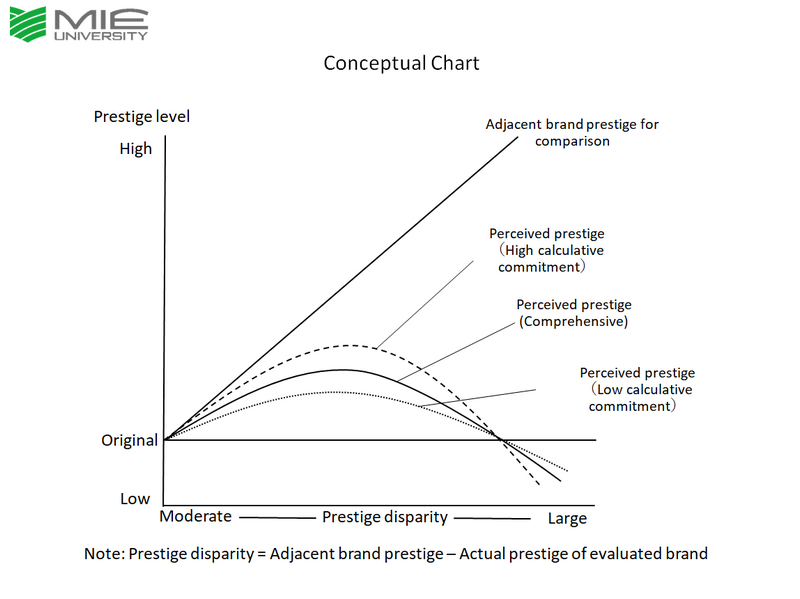Summary of our research
Previous literature reports cases in which individuals appraise themselves when referring to others superior to themselves (upward comparison). The literature also suggests individuals tend to raise their self-appraisal than their original level when the target in upward comparison is close to themselves (assimilation effect) while they lower their self-appraisal than their original level when the target is extremely superior to them (contrast effect).
Meanwhile, the researchers report that apparel stores are sometimes developed in prestigious locations where luxury boutiques are operated, despite low expected profit given the high rent. In such cases, companies seem to attempt to leverage the assimilation effect based on the luxury image of other apparel brands located in the neighboring boutiques (adjacent brands). However, their huge investment in securing these locations will be in vain if the contrast effect arises.
From the above perspective, this study examines the effect of location prestige based on adjacent brands on the perceived prestige of a particular brand. Via an online consumer survey conducted in the Tokyo area in 2018 (313 participants), the perceived brand prestige of the evaluated brand was assessed across five hypothetical location frames comprised of ten apparel brands.
The results show the perceived prestige of the evaluated brand becomes higher when the prestige disparity between the evaluated brand and the adjacent brand is moderate (assimilation) while this effect disappears when this disparity becomes large. Besides, the data imply the assimilation effect becomes stronger when consumers' calculative commitment* is high.
The results do not recommend managers should easily copy the marketing mix of excellent companies: otherwise, they may face the undesirable consequence of little contribution to their brand equity, despite huge marketing investment. Besides, the data suggest that consumers with strong and positive psychological connections with a particular brand may accept the location image that endorses it especially when their interest is based on calculative reasons, such as purchase failure. The results also imply the adjacent brand attributes other than prestige may cause assimilation and contrast effects as well. Consequently, multi-dimensional management of the attribute disparity with neighbors is recommended for companies when developing their boutiques.
Different from previous literature, this study concerns consumers' brand evaluations based on upward comparisons with store location factors such as the adjacent brand image. This is the originality of this study, which contributing to this research area. Recently, the study has been published as an article in Journal of Global Fashion Marketing, an influencing journal in the field of fashion marketing published by Taylor & Francis Group and indexed in Web of Science.
(The study is an activity of Research Unit for Brand Strategy at Faculty of Humanities, Law and Economics)
Author: Dr. KUMAGAI Ken(a professor at Faculty of Humanities, Law and Economics, Mie University); Dr. NAGASAWA Shin'ya (a professor at Graduate School of Business and Finance, Waseda University)
Title: Moderating effect of brand commitment on apparel brand prestige in upward comparisons
*Calculative brand commitment: A type of psychological connection with a particular brand derived from risk avoidance, such as purchase failure.

Researcher information

KUMAGAI Ken
Professor, Dept. of Law and Economics, Faculty of Humanities, Law and Economics, Mie University
Specialized area:
Marketing, Branding, Consumer Behavior
Current research field:
Sustainable Marketing, Luxury Branding, Brand Strategy of Japanese Enterprise

SHINYA Nagasawa
Professor, Graduate School of Business and Finance, Waseda University
Specialized area:
Design & Brand Innovation
Current research field:
Luxury Branding